Sometime ago FMIC (Fender Musical Instrument Company) went on an acquisition spree and either bit off more than they could chew or just decided to buy off the competition.
FMIC first acquired Guild in 1995. More on that story later.
Tacoma Guitars was considered a big acquisition for Fender in 2004. Fender never did produce a good acoustic guitar.
But soon the artisans and workers found themselves making not Tacoma but Guild guitars.
All that is left on the FMIC brands site is a page that says "We are Seasoning the Wood" suggesting there may be a comeback. That is doubtful. Tacoma Guitars ceased production shortly after the Fender acquisition.
Sunn Amplification was founded by former Kingsmen bass player Norm Sundholm. In 2002 the brand was purchased by FMIC. They attempted to revive the brand, however nothing ever happened with Sunn Amplification. All that is left of Sunn is a web page that links you to Fender customer service.
Hamer Guitars were always a small firm. In 1988 they were purchased by Kaman Music. Hamer was part of an acquisition by FMIC in 2008. Jol Datzig, one of the owners and the main designer left in 2010 now runs his own company and is making high grade guitars.
Paul Hamer runs a retail framing business in Chicago and Frank Utmeyer left and went to work for C.F. Martin Guitars.
Charvel and Jackson guitars are all made in Asia.
Kaman chose to divest itself of the music business in 2008 and sold the brand and assets to Fender Musical Instruments. In my opinion Fender did not put much effort into marketing anything but the Asian made products.
Visits to music retailers did not show many high-end Ovation Guitars offered for sale.
Gretsch is experiencing somewhat of a revival, and although owned by Fender it is still managed by Fred Gretsch. Most all Gretsch instruments are made in Asia under the watchful eye of the owner. I hope Fender allows Gretsch to prosper. This company makes wonderful guitars.
 |
| Guild Guitars in Westerly Rhode Island |
To ease the burden on Corona facility, which had only made electric guitars up to this point, and was now transitioning into making archtop and acoustic guitars, Guild's Westerly Rhode Island factory artisans and workers prepared guitar 'kits' that they shipped to Corona.
These kits were near-complete production guitars that only needed finishing and final assembly before being sent to retailers. After this Westerly closed up the shop, leaving its employees without jobs.
 |
| Worker at the Tacoma Factory |
In a few short years Fender discontinued production of US-made Guild electric guitars completely. In 2008 manufacturing of US made Guild guitars was moved to the Kaman, New Hartford Connecticut facility, the same factory that for years has built Ovation Guitars.
Recently the following information was released to the news:
“Ovation Guitars that are made-in-the-USA, will cease production, as parent company Fender Musical Instruments announced on April 23, 2014.
Citing “current market conditions and insufficient volume levels,” Fender officials released a statement saying production would cease in New Hartford, Connecticut by June, displacing 46 employees. The company’s Fender and Guild lines of acoustic guitars, which are also crafted at the Connecticut site, “will transition to other facilities at a later date,” continued the statement. Ovation guitars, however, will continue to be built outside the U.S.; the brand has production locations in China, South Korea and Indonesia.”
In my opinion, this is very sad news.
The first Ovation guitars were introduced in the mid-1960s by Charles Kaman.
Kaman, an engineer by training, was first employed by Igor Sikorsky. Sikorsky was a pioneer in the development of helicopters. Kaman left Sikorsky and started his own company. He built the first gas turbine powered helicopter.
Charles Kaman was a guitar aficionado. His Martin was hanging on his office wall when he noticed some cracks in the wood. As an engineer he began to think about flaws in the structural design of the guitar.
Sometime in 1965 with the aid of his research and development department he came up with the concept of a parabolic body that would be made of the same fiberglass used in constructing helicopters. The theory was the lute shaped back would act as a better design to project sound waves forward.
Kaman called this rounded plastic body Lyrachord and named the guitar Ovation.
The first Ovation guitar was displayed at the 1967 NAMM in Chicago. Not long after that, Mr.Kaman introduced Glen Campbell to Ovation guitars and Campbell went on to use Ovation guitars throughout most of his career.
One of the first production model Ovation guitars was named for Bluesman, Josh White. Ovation was one of the first companies to integrate piezo pickups as a regular feature. These early Ovation electric/acoustic guitars became favorites of many performers and are still being used.
Al DiMeola had a relationship with Ovation and did clinics throughout the country with his signature model Ovation guitar. DiMeola cited the piezo and the design of the bridge saddle as some of his favorite features. Ovation guitars did not use bridge pins, rather the strings were held at the end of the bridge.
Ovation went on to design a guitar that was completely made of synthetic material. The material was thinner and stronger than wood, therefore it would vibrate more. This design by Kaman was called The Adamas Guitar.
Charles Kaman’s company eventually quit manufacturing helicopters and set its goal on manufacturing composite parts for industrial corporations. Kaman Company was acquired in 2008 by Brookhouse Holdings Limited which is a composite development company head-quartered in the U.K. The company is still know as Kaman. (KAMN)
During its early history Ovation Guitars began producing entry level guitars. The Applause model was originally created with a metal neck and fretboard. The top of the body was wood laminate.
The Celebrity Series of guitars are entry to mid-level- to professional grade guitars. The Applause models were made in China, while the Celebrity brand is made in differing Pacific rim countries.
 |
| C. William Kaman II of Ovation and Larry Thomas of Fender |
On January 2nd of 2008 Kaman Music Corporation Inc was acquired by Fender Musical Instruments Corporation.
Along with Ovation, Fender acquired the rights to Hamer guitars, Genz Benz Amplification, Takamine Guitars Toca percussion, Gibraltar Drum Hardware, Gretsch Drums, LP Music (Latin Percussion) Dixon Hardware, Dixon Drums, Sabian Cymbals, Legend Percussion, CB Percussion, Seiko Tuners, Lee Oskar Harmonicas, Hercules Stands, Becker Instruments and Vic Firth Percussion.
Many of these brands were not manufactured by Kaman, but had entered into a distribution arrangement with Kaman. This agreement became part of the acquisition.
For instance, Kaman was a distributor for Takamine, but does not own that company. Gretsch still owns the brand, but entered an agreement with Fender to manufacture and market the brand.
By this time C. William Kaman II. was running the musical instrument side of Kaman. Charles Kaman passed away at age 91 in 2011.
Somewhere in the late 1990’s it is my opinion that vintage guitar aficionados began to look down their noses at Ovation, because of the ‘plastic back.’
Despite the Lyrachord parabolic bowl, Ovation guitars are extremely well made and used top grade wood for the tops and necks. The design was superior to many manufacturers instruments. Plus Ovations were loud guitars and looked great on stage.
 |
| Classic 1613 |
Historically, American made Ovation guitars have depreciated in price through the years, while other brands have appreciated in worth. With the closing of the USA facility, I wonder if the market for Ovations will increase; only time will tell, as another great company closes its doors for good.
I am also concerned about the future of Guild Guitars. There was a time when Guild Guitars were on the same plateau as Martin and Gibson. Fender spokesman Jason Farrell said, "Fender's New Hartford guitarmaking plant will continue to make Fender and Guild instruments, but that production will move to another facility at a later date." Whether or not that facility is based in the United States is anyones guess. It would be a shame to lose a fine brand such as Guild.

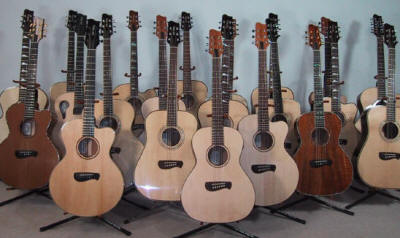

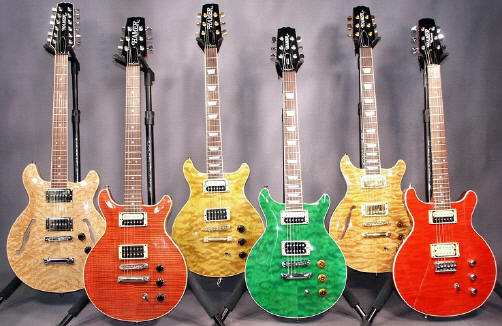


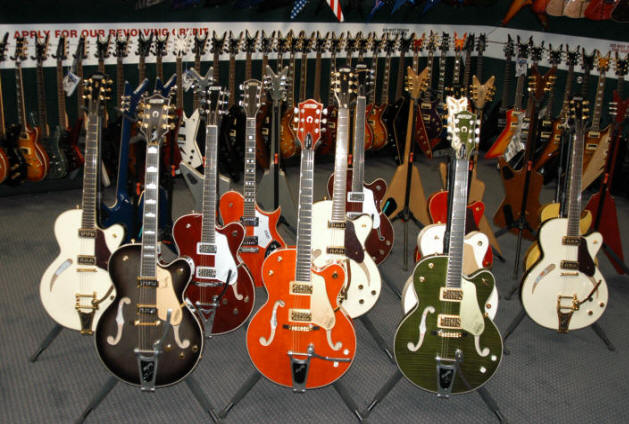




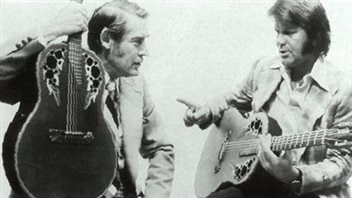
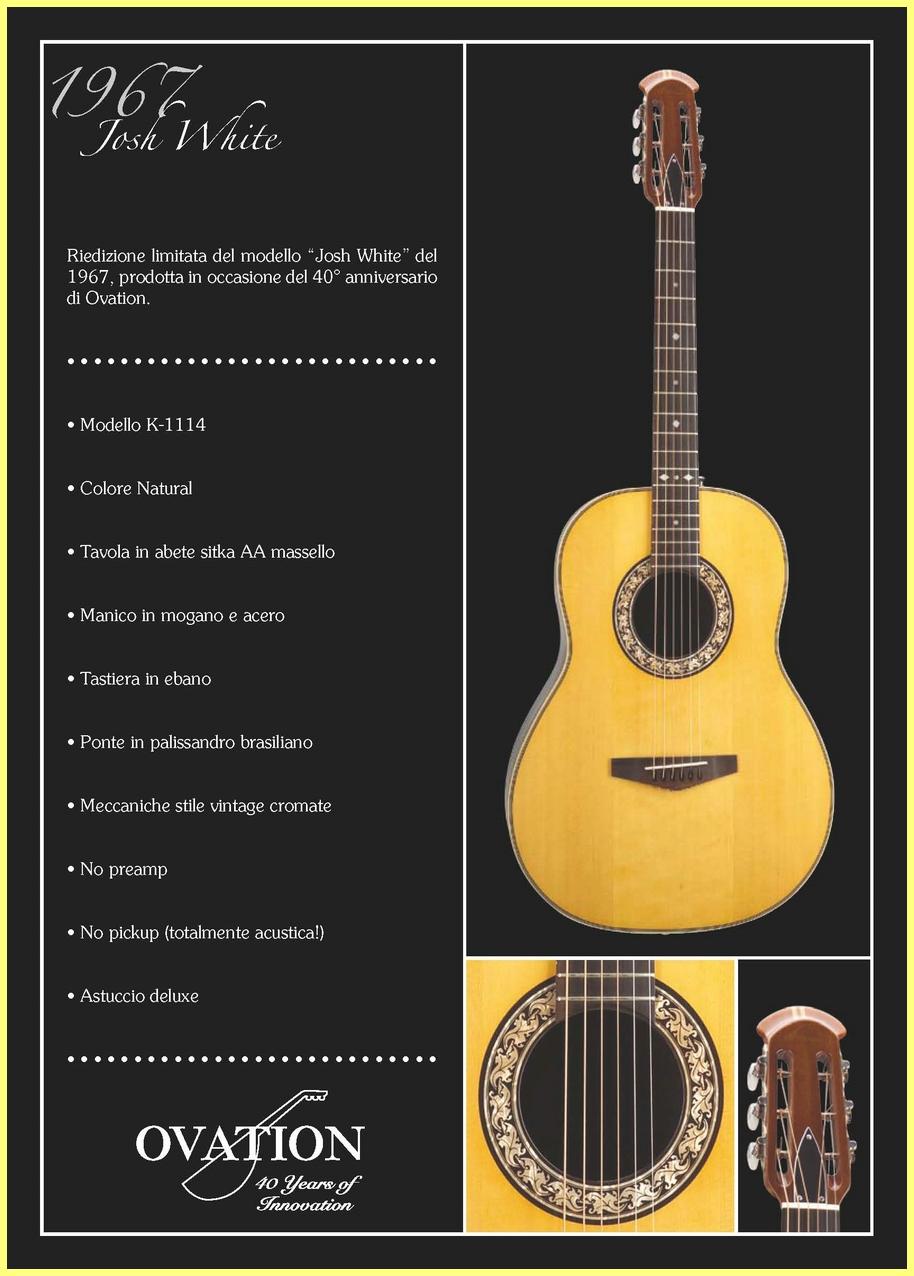
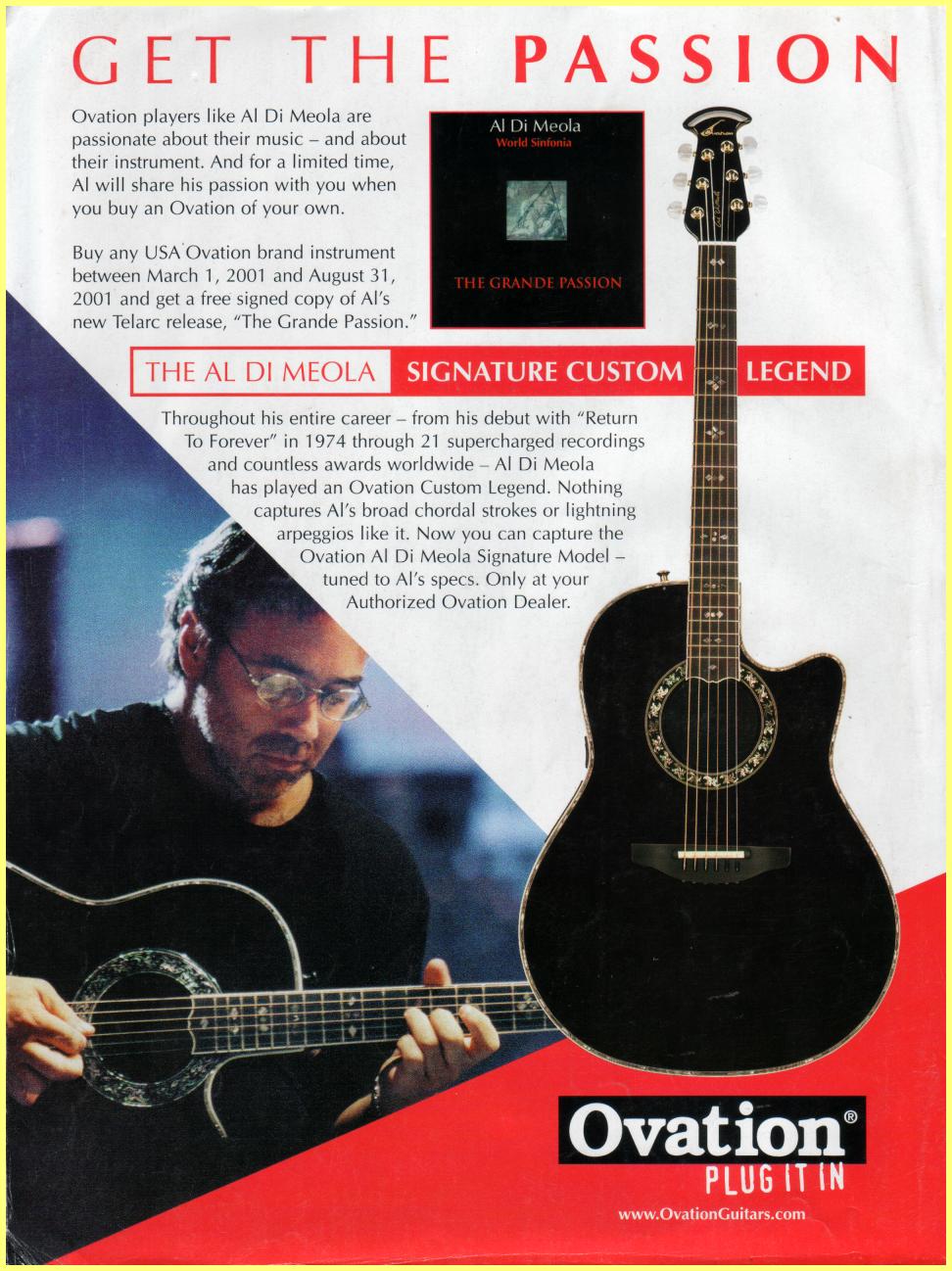
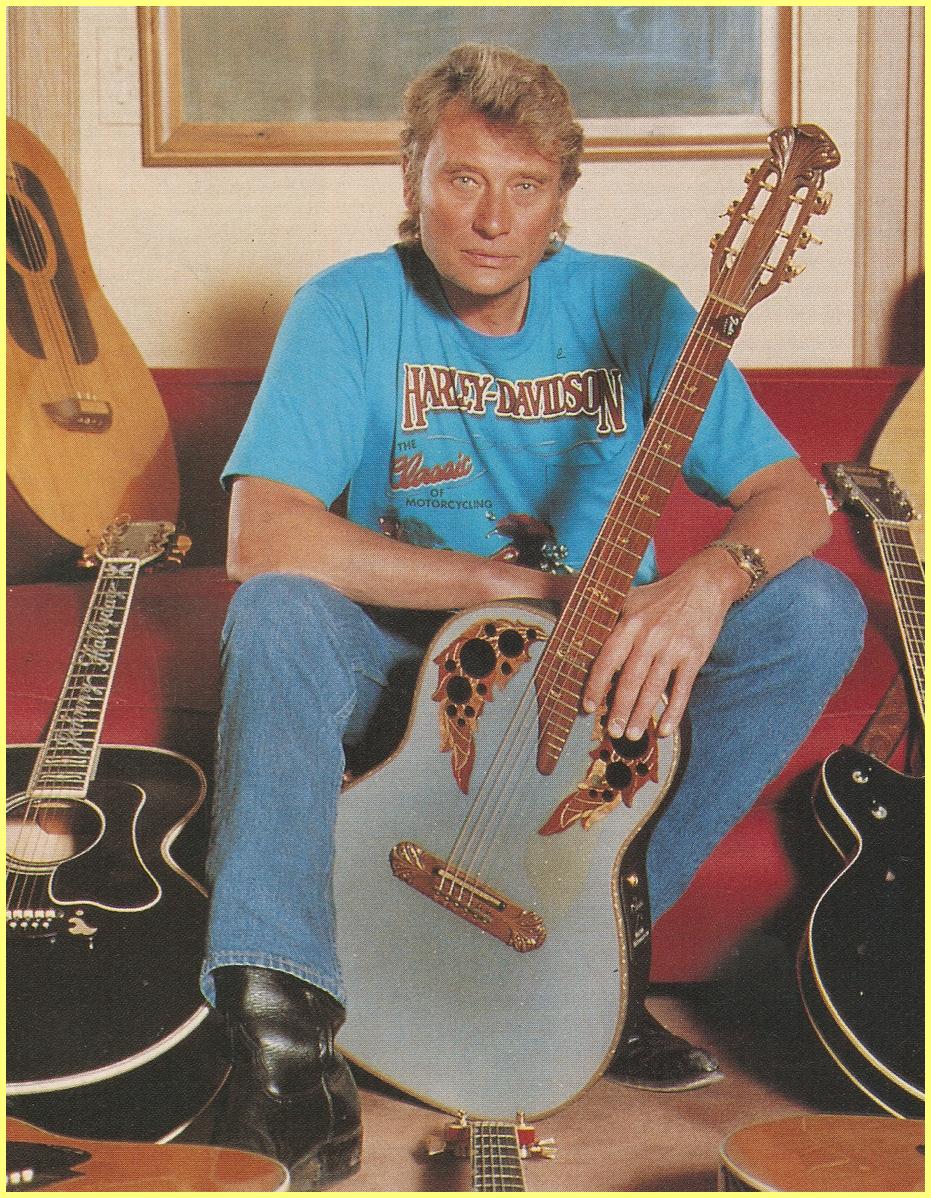




Tidak ada komentar:
Posting Komentar